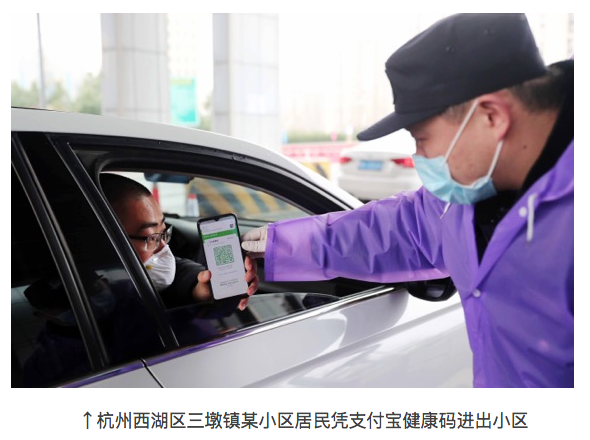(Pic credit here)
Hysteria, obsession, and what feels like the inescapable reality of a pandemic served up in a never ending stream of exclamation points. Thsi si what surrounds the masses in thsi era of pandemic:
The COVID-19 pandemic brings suffering, and instability, and dislocation, and trauma, and loss. And it brings death. It brings the death of individuals, it brings the statistics of death, it brings the ratings of death, it brings accountability for death. It brings a constant chatter about death--death that has come, death that is here, death that is yet to come.
Death is both a physical manifestation of personal tragedy and loss; death is an abstraction that is used as an illustration, as a sign, as the symbol and harbinger of this or that. Death becomes the marker because of the identity between pandemic and death. This is not the orderly death that can be understood by the application of the metrics of the cycle of life, a production line in the factory ordering undifferentiated passages from birth to death, nor is this death that is positioned at the end of ordinary medical protocols for the ordinary experiences of life. It is the ultimate terror--it brings with it the potential of death, where everyone is potentially marked even as only some suffer directly or indirectly. But in the process death becomes the air we breathe, it becomes the substance of the information we receive. It is the subtext of all communication and the excuse for every action. We are choking on the fumes of death and touched by its drama as it is played out in personal tragedy projected through the miracle of technology to all corners of the earth.
Pix Credit HERE
Every one of us experiences death, engages with it, and participates in its passage from a potentiality on the horizon, to the whirlwind that uproots everything, to the detritus of an engagement around us that is indifferent to the way in which we clean it up. Death comes in the petri dishes that cruise ships have sometimes become; it surrounds islands of isolation like the rising sea, always threatening to overwhelm those islands of isolation situated precariously between the satisfaction of prevention and the guilt of as passive witness of the flows of death swirling about them. witness. To avoid testing is to tempt Death, to test positive is to acquire a marker of death's potential.
The last three paragraphs are histrionic; they read like a bad poem; they are suffocating. They mean to convey intensity, panic, emotion, alarm, and all of the other reactions appropriate to a crisis of this kind. They are meant to contribute to a narrative that is useful for getting people to take the pandemic seriously, and to treat institutional instructions with even greater seriousness. News reports, governmental statements, the analysis of experts, the attention of social media--all of these add layers that in the end read like a constantly reinforcing reminder of societal distress at a macro and micro level.
But the effects of these narratives are not necessarily always positive. In its more negative forms it may be possible to surmise that these pandemic narratives spread death beyond the effects of the COVID-19 virus and its attacks on the human body. It penetrates the human psyche and insinuates itself as a point of ecstasy of pandemic, of a euphoria that moves from light to darkness. The frenzy of death that throbs through the reporting of the pandemic and through the responsibility borne by those who confront the physicality of death, is both a great molder of societal response, of popular feeling, and when it manifests as despair, in suicide.
Suicide is worthy of far greater attention in the midst of the many challenges of the pandemic. It is an expression of personal agony, of illness, of despair, and of the power of the narratives of pandemic--and its expression through mechanisms of societal communication, policy and management--that is likely a far more powerful factor in the framework of epidemic response than one might gather from the single minded focus on the narratives of state and of those who seek to use their voices to move discourse towards particular ends. It kills as surely as the virus at the heart of the pandemic. "Crisis hotlines nationwide are surging with calls from Massachusetts to Oregon, both of which are states with “shelter-in-place” orders implemented, keeping people out of work and isolated at home. In Portland, Police Chief Jami Resch said Tuesday suicide threats or attempts are up 41 percent from this time last year and have jumped 23 percent since 10 days before a declared state of emergency" (More People Died From Suicide Than Coronavirus In Tennessee This Week).
Beyond the certainty of the alignment of a sociology of pandemic and suicide, of the culture of response and of this terrible ending of life, there is little but the vast space of knowledge in need of production (two examples below: Anxiety and depression likely to spike among Americans as coronavirus pandemic spreads; and a study of the mental healthj effectys of the pandemic on front line medical personnel in Wuhan (Factors Associated With Mental Health Outcomes Among Health Care Workers Exposed to Coronavirus Disease 2019)).
At the same time there are stories. And these stories of those who in the face of epidemic chose that path are worthy of retelling. A few of those stories follow. Suicide is an an abstraction; it is the sum of the stories of individuals confronted by a context of meaning, of significance, we have all helped to build.
At the same time there are stories. And these stories of those who in the face of epidemic chose that path are worthy of retelling. A few of those stories follow. Suicide is an an abstraction; it is the sum of the stories of individuals confronted by a context of meaning, of significance, we have all helped to build.








































